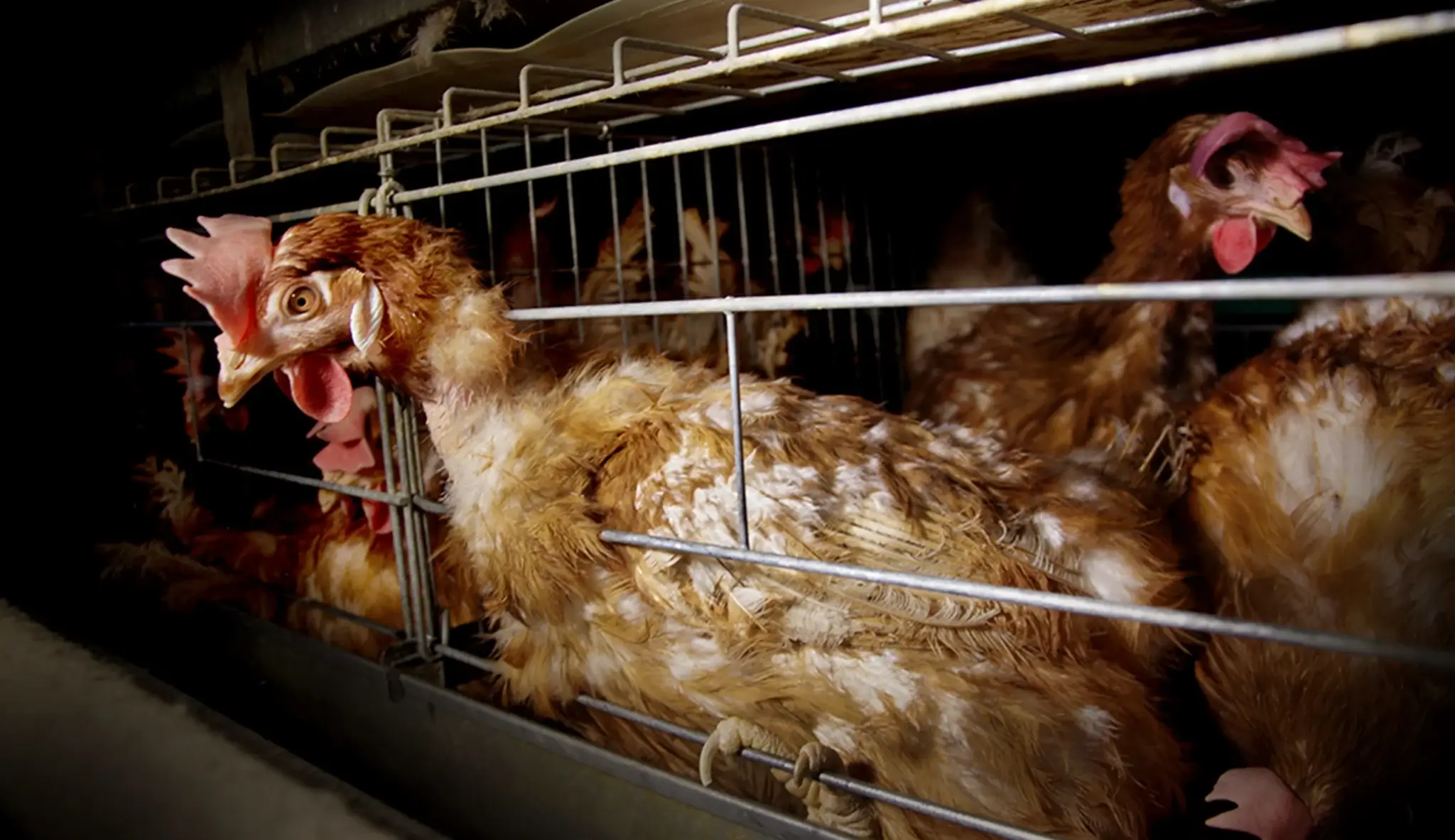The decline of poultry cage systems, once a mainstay in the industry, is becoming increasingly evident as producers reassess their practices. This shift arises from growing societal values focused on animal welfare, sustainability, and ethical farming.

In this article, we’ll explore the key reasons behind the decline of poultry cage systems and what this means for the future of poultry farming. As far as this goes, we are already bought and sold on the idea that animal welfare will define the future of poultry farming.
You may also be interested in:
- How to implement effective biosecurity measures in your poultry farm
- Why and how to give brother rooster a life
1. The Rise of Animal Welfare Concerns
One significant driver behind the end of poultry cage systems is the increasing focus on animal welfare. Today’s consumers are more informed and vocal about how animals are treated in agriculture.
For instance, the conventional cage system, which confines hens to cramped spaces with minimal movement, faces criticism for causing stress and discomfort.

Moreover, animal welfare organizations and activist groups have highlighted these issues, advocating for better living conditions. As a result, many consumers now choose eggs and poultry products labeled as free-range or cage-free.
This demand has prompted producers to rethink their farming methods, pushing them towards more humane practices that move away from traditional poultry cage systems.
2. Changing Consumer Preferences
Consumer preferences are shifting decisively towards humane and sustainable food sources. Surveys consistently show that a large portion of the population is willing to pay more for products that reflect their values, especially those prioritizing animal welfare. Consequently, retailers and food brands are increasingly committing to sourcing eggs from cage-free systems.

In response to these changing preferences, many poultry farmers are transitioning away from conventional poultry cage systems. As consumers demand transparency and ethical practices, producers recognize the need to adapt to remain competitive and profitable.
Regulatory Changes and Bans on Poultry Cage Systems
Regulatory changes significantly influence the decline of poultry cage systems. Various countries and regions have implemented bans on conventional cages, compelling the industry to adopt alternative housing solutions.
For example, the European Union has committed to phasing out battery cages entirely, and several U.S. states are following suit.

These regulations not only reflect public concern for animal welfare but also create a legal obligation for producers to change their practices. As these laws tighten, farmers must explore more humane alternatives to poultry cage systems to stay compliant and competitive.
Economic Factors and Market Trends Affecting Poultry Cage Systems
Transitioning away from poultry cage systems can also be economically advantageous.
While initial investments in alternatives like free-range or aviary setups may be higher, these systems often yield better-quality products that command premium prices. Furthermore, enhanced animal welfare can lead to lower veterinary costs and improved overall flock health.

Market trends indicate a growing demand for cage-free and organic products. As more consumers prioritize these options, producers who adapt can gain a competitive edge. By investing in alternative systems, farmers can align their economic interests with ethical considerations, creating a more sustainable business model.
Innovations in Poultry Farming Beyond Cage Systems
As poultry cage systems fade away, innovative solutions are emerging to enhance both welfare and productivity. Technologies such as automated feeding and watering systems, along with advanced monitoring tools, are improving efficiency in alternative housing setups. These innovations enable farmers to maintain productivity while adhering to higher animal welfare standards.

Additionally, ongoing research informs best practices in poultry management. This ensures that alternative systems provide adequate space, environmental enrichment, and social interaction for birds. As the industry evolves, it becomes clear that the future of poultry farming will require a balance between innovation and ethical practices.
Conclusion
In conclusion, the end of poultry cage systems reflects a significant shift in societal values towards animal welfare, consumer preferences, and regulatory requirements.

As poultry producers adapt to these changes, they have a unique opportunity to embrace more humane practices that benefit both the animals and the industry.
By moving away from traditional poultry cage systems, farmers can enhance their ethical standing and meet the demands of a more conscious consumer base. The future of poultry farming lies in sustainability, innovation, and a commitment to animal welfare.

